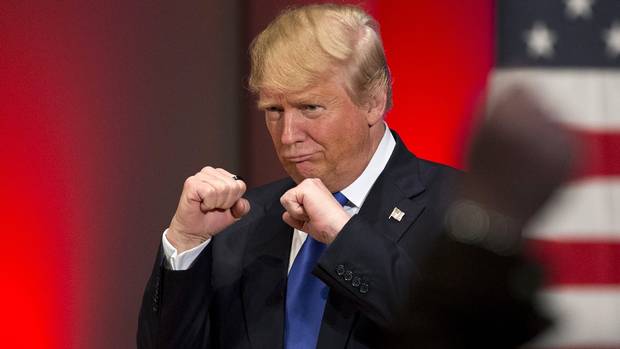Congress could not manage to repeal and replace Obamacare and install a healthcare plan that actually serves the American people, so President Trump set the wheels in motion to do it himself. With Trump’s most recent executive order, the consumer will have greater control over their health plan and the Labor Department (DOL) will be able to take an active role in reforming the system by going across state lines. While this might be a spot of brightness in a dark debate in Congress, Republicans must remain cautiously optimistic as the DOL moves forward.
The President’s “Executive Order Promoting Healthcare Choice and Competition Across the United States” does precisely what the title suggests. The order directs the DOL, the Department of Health and Human Services, and the Treasury to review regulations which inhibit choice and competition; their first directive is to expand access to association health plans (AHP) across state lines.
As Timothy Jost explains in a Heritage Foundation explains:
AHPs… are arrangements in which an insurance policy is held by an association to cover its members, or through which an association self-insures for the benefit of its members. The association in turn issues certificates of coverage to its members, who are thus insured through the association. An association may be a legitimate professional or trade association which incidentally offers health insurance to its members as a benefit.”
By expanding access to these plans, Trump will allow thousands of small business employers to have the same purchasing power as large employers to receive insurance options that work for themselves and their employees. Small businesses with limited bargaining power, will not able to join together to negotiate ideal benefits.
This also opens the door to insurance competition across state lines, rather than the current system in which insurance sales are restricted by state boundaries. Trump’s executive order urges the DOL to pursue allowing consumers to purchase plans in any state. The executive order empowers consumers to pay for plans they can afford that work for them.
This should drive down prices nationally. While an individual living in New Jersey pays nearly $500 a month in premiums, an individual in Utah pays just over $150, currently. If the DOL opens the door to cross-state competition, the New Jersey resident can now look to Utah insurance companies to buy their insurance, forcing New Jersey groups to lower prices or produce more attractive plans.
State legislators will have to adapt as well, decreased regulations will attract insurance companies and promote competition in the market. Trump’s executive order drives down premiums, making it the real affordable care plan.
But the devil ultimately remains in the details of how the DOL chooses to handle this change.
As Americans For Limited Government President Rick Manning explains:
President Trump has wisely asked the Department of Labor to examine the law and body of regulation to determine whether new regulations can be put into effect allowing for the sale of association health plans across state lines. The vast majority of Obamacare was written by federal bureaucrats interpreting the law via the regulatory process. President Trump’s direction to the Department of Labor will now use that same process, created by Congress, to inject competition into the healthcare markets.”
What Republicans should be quick to remember is that just like the Obama executive orders, what the current President puts in place via executive order the next president can remove. Trump’s noteworthy action is not an excuse for Congressional inaction; Congress must still take the steps to entirely repeal and replace Obamacare to ensure the full burden is removed from the American people.
Trump’s executive order is a step in the direction of greater choice and competition for the American people, but genuine healthcare reform is still needed. If Trump’s DOL can effectively open healthcare access across state lines and drive premiums down, they will be sending a message to the entire Congress — if we can do it, you must too.

